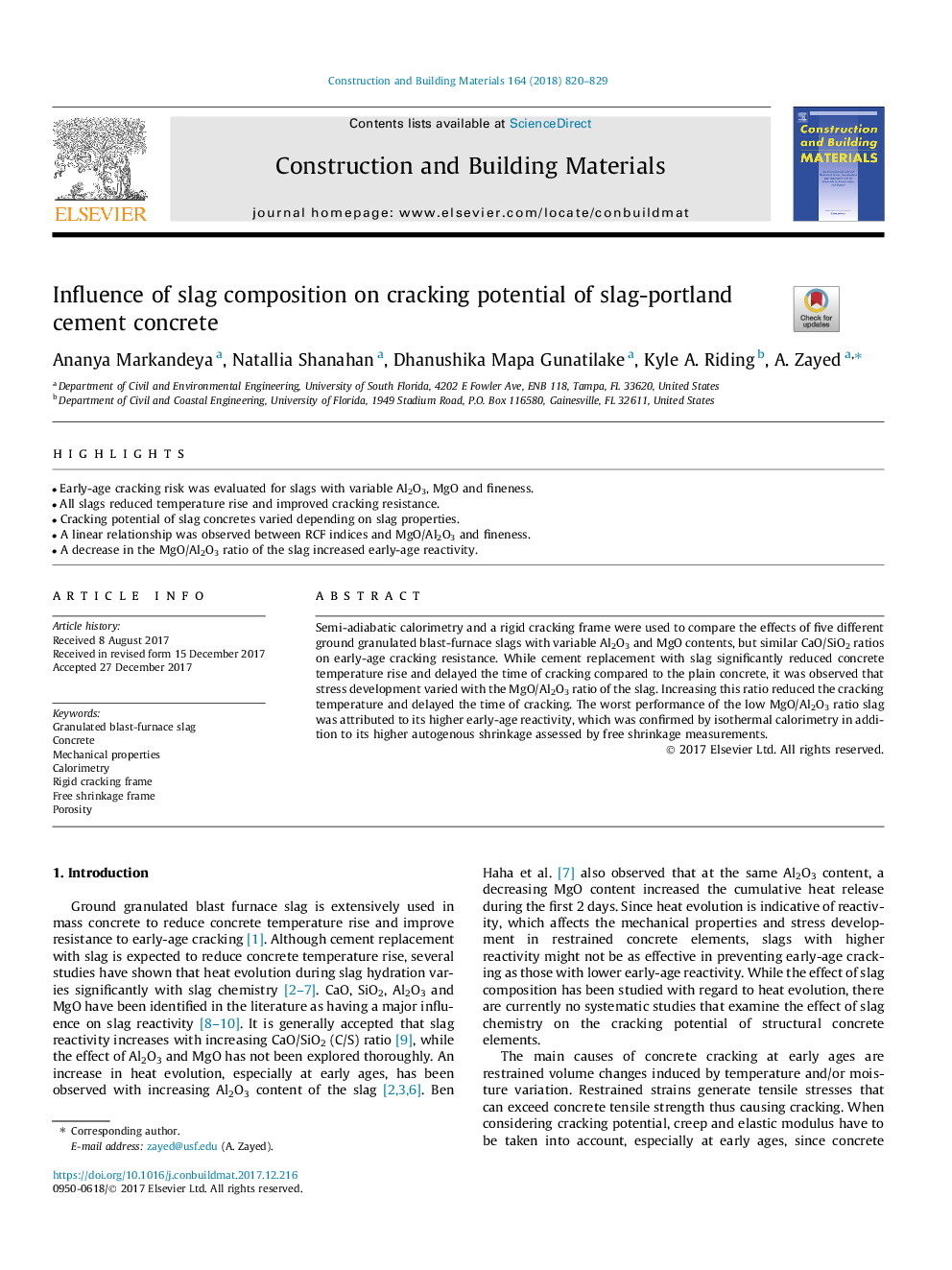| Article ID | Journal | Published Year | Pages | File Type |
|---|---|---|---|---|
| 6716151 | Construction and Building Materials | 2018 | 10 Pages |
Abstract
Semi-adiabatic calorimetry and a rigid cracking frame were used to compare the effects of five different ground granulated blast-furnace slags with variable Al2O3 and MgO contents, but similar CaO/SiO2 ratios on early-age cracking resistance. While cement replacement with slag significantly reduced concrete temperature rise and delayed the time of cracking compared to the plain concrete, it was observed that stress development varied with the MgO/Al2O3 ratio of the slag. Increasing this ratio reduced the cracking temperature and delayed the time of cracking. The worst performance of the low MgO/Al2O3 ratio slag was attributed to its higher early-age reactivity, which was confirmed by isothermal calorimetry in addition to its higher autogenous shrinkage assessed by free shrinkage measurements.
Related Topics
Physical Sciences and Engineering
Engineering
Civil and Structural Engineering
Authors
Ananya Markandeya, Natallia Shanahan, Dhanushika Mapa Gunatilake, Kyle A. Riding, A. Zayed,
